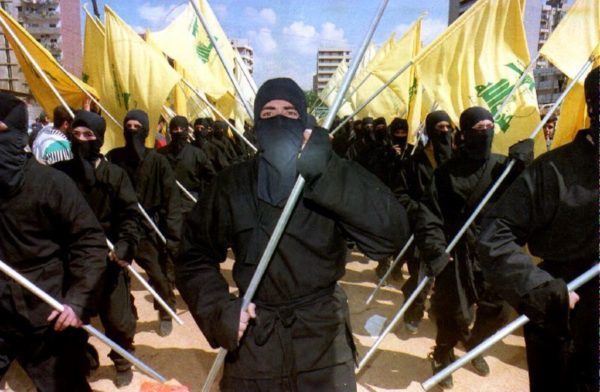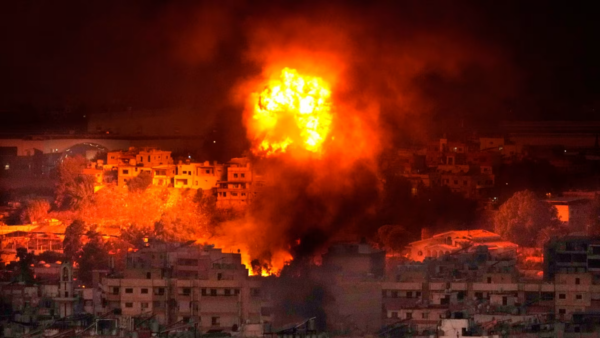File: Destruction, death, and fear engulfed Beirut, Lebanon, on September 28, 2024. The blasts could be heard throughout Beirut, an earth-shaking thunder that rolled across the city that Friday evening when Hezbollah leader Hassan Nasrallah was assassinated. Hezbollah initiated the attacks against Israel on October 8, 2023, without consulting any of Lebanon’s top officials. Over 4000 Lebanese were killed in the war
By: Ali Hussein, Ya Libnan Opinion Columnist
Hezbollah is a massive liability for Lebanon. Time and again, the group has violated national consensus, defied the rule of law, and dragged Lebanon into conflicts it never chose. Dialogue with Hezbollah has consistently proven to be a waste of time—nothing more than a smokescreen for the group to buy time, rearm, and impose its will on the Lebanese state.
Hezbollah has never honored the outcomes of previous dialogue sessions. It defied the 2006 agreement on national unity when it launched a unilateral attack on Israel, sparking a devastating war. In 2012, it ignored the Baabda Declaration, which aimed to insulate Lebanon from regional conflicts, by sending thousands of fighters to support Syrian dictator Bashar al-Assad. In 2023, Hezbollah again acted unilaterally, launching attacks against Israel in support of its Iranian-backed ally Hamas—another reckless move that risked plunging Lebanon into a wider war.

Now, after suffering heavy losses and having many of its strongholds destroyed by Israel, Hezbollah is suddenly calling for a “national dialogue” on Lebanon’s defense strategy. But many in Lebanon see through the charade. They view Hezbollah not as a defender of Lebanon, but as a destabilizing force, weakened and discredited.
The Lebanese Army, according to local media reports, has begun entering former Hezbollah bases north of the Litani River—slowly and discreetly. It may be the beginning of a long-overdue reassertion of state sovereignty.
Lebanese Forces leader Samir Geagea has flatly rejected any new talks over Hezbollah’s arms. He instead called for a clear, six-month deadline for the group’s full disarmament, both north and south of the Litani. He emphasized what most Lebanese now believe: that there is no room for more hollow dialogues or ambiguous “defense strategies.” The state must act.
Hezbollah’s militarization continues to isolate Lebanon. Its strongholds, leveled during the war, remain in ruins—not a single international donor is willing to help rebuild as long as Hezbollah remains armed. The group is not only a threat to national security but also a roadblock to Lebanon’s recovery.

The silos were destroyed by a massive explosion Aug 4, 2020 in which 220 people were killed , 7000 Injured, 300,000 became homeless after what remained of the 2,750 tons of Ammonium Nitrate that were illegally stored there for nearly 7 years exploded . President Michel Aoun’s ally, Hezbollah, has been for years trying to fire Judge Tarek Bitar, who is investigating the explosion, reportedly because it is concerned about exposing its role in supplying the Syrian regime with the explosive chemical for use in its barrel bombs against the civilians.
Worse still, Hezbollah is directly responsibility for one of the darkest days in Lebanon’s modern history. In 2020, the Port of Beirut and its surrounding neighborhoods were obliterated in a massive explosion when thousands of tons of ammonium nitrate—illegally stored there under Hezbollah’s watch—detonated. That chemical stockpile was reportedly intended for use by the Assad regime in Syria, for making barrel bombs that killed countless civilians during the war, which claimed nearly half a million lives. The explosion killed over 200 people, injured 7000 thousands, made 300,000 homeless and left parts of Beirut in ruins. To this day, no real justice has been served.
More recently, the downfall of Syrian President Bashar al-Assad by HTS forces has further isolated Hezbollah from its Iranian patron, weakening its regional leverage. The group’s options are narrowing.
The question is no longer if Hezbollah will be disarmed. It is when—and the answer must be soon, before Lebanon suffers even more from the burdens of a militia that answers to foreign powers and not to its own people.
Finally, let’s not kid ourselves: Hezbollah was never created to liberate Palestine or defend Lebanon. It was created solely to expand Iran’s influence in the region. And Iran, for its part, never had any genuine intention of liberating Palestine either. Its main interest has always been—and continues to be—the destabilization of the Middle East to serve its own strategic ambitions.
It’s time to call a spade a spade.
The question is no longer if Hezbollah will be disarmed. It is when—and the answer must be now.

